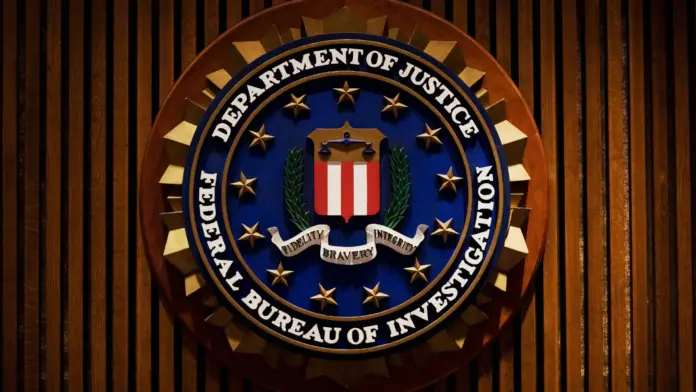Smartphones have become a bigger part of our lives. We rely on them for everything from banking and shopping to staying in touch with others. But as we embrace this new technology, so too come new risks. The Federal Bureau of Investigation (FBI) recently announced a warning for iPhone and Android users over a spike in cyberattacks against mobile devices. This article will help decode the new information, explain the risks, and include tips to help you protect yourself.
What Did the FBI Warn About?
“Recently, the FBI issued a public warning to smartphone users, indicating a substantial rise in sophisticated cyber attacks targeting iPhones and Android devices.” These attacks aim to steal personal information including bank account details, passwords, and even sensitive images or messages. The FBI noted that these threats are growing more sophisticated and now more difficult to identify, making it critical for users to take actions to shore up defenses.
The alert brings attention to three primary types of threats:
Phishing: Cybercriminals are sending bogus emails, text messages, and pop-up messages that appear to be from legitimate companies. These messages often include links or attachments that install malware on your device as soon as you click on them.
Malware And Spyware: Smartphone hacks also are from using malicious software. Once installed, this software can monitor your activity, steal your data, or even take control of your device.
Fake Apps: We’re uploading fake versions of popular apps to app stores. While these apps may appear to be authentic, they are designed to either steal your information or infect your device with malware.
Also read: CFPB Takeover: Elon Musk’s Team Gains Control – What’s Next?
Why Are iPhones and Android Devices Vulnerable?
Both iPhones and Android devices can be attacked by cybercriminals—just not the same way. Apple’s tight control over its App Store and operating system makes iPhones often seen as more secure. But no device is immune to hacking. By 2025, hackers had learned new methods to work around security systems, such as taking advantage of software bugs or persuading people to download hacked apps on their devices.
How Can You Protect Yourself?
The FBI’s announcement is a reminder of how we all need to take steps to secure our digital lives. There are some practical steps you can take to guard your iPhone or Android device:
Keep Your Software Up to Date: Apple and Google periodically release updates to patch security holes. Keep your device’s operating system and apps always updated.
Do not Click on Suspicious Links: Avoid clicking on links sent in emails, texts, or pop-up messages, especially from unknown sources. If you’re in doubt, find the company’s official website or phone number to contact them directly.
Download Apps from Trusted Sources Only: Use official app shops such as the Apple App Store or Google Play Store. Do not download apps on websites other than official ones, as they can contain malware.
Antivirus Software: You may also want to download reputable antivirus/anti-malware software on your device. Such programs can identify and log threats before they do damage.
Avoid Public Wi-Fi: Public Wi-Fi can be insecure and allow hackers to steal your information. Never check sensitive information (like bank accounts) that you’re not on public wi-fi. If you have to do it at all, try using a Virtual Private Network (VPN) to encrypt your connection.
Verify App Permissions: Make sure to check what permissions you have given your apps. If an app is requesting access to information that it doesn’t need, like your contacts or location, think about rescinding those permissions or deleting the app.
also read: Red Mill Store and Cafe to Close This Month – Final Sales!
What Is the F.B.I. Doing to Assist?
The FBI is collaborating closely with tech companies, including Apple and Google, to help identify and patch security flaws. They are also looking at gatherings of cybercriminal gangs behind those strikes. The FBI has also launched a public awareness campaign to raise awareness among users of the risks and how to mitigate them.
Cybersecurity in 2025
The importance of cybersecurity in 2025 Technology is always changing, and the same goes for the methods that cybercriminals use. This is a reminder that we all have a role in protecting our digital lives, as the FBI points out. You can minimize your risk of being a victim of cyberattacks by being aware and taking basic preventive measures.
Conclusion
The FBI’s warning last week to iPhone and Android users is a wake-up call to anyone who uses a smartphone. Cyberattacks are getting more advanced but if you implement the tips covered in this article, you will already lower your risk exposure tremendously. Do not forget to run software updates, steer clear of dubious links, and set up sturdy passwords. Be alert, be educated, and be protectful of your information! Your smartphone is a powerful tool — just make sure it’s also a safe one.








